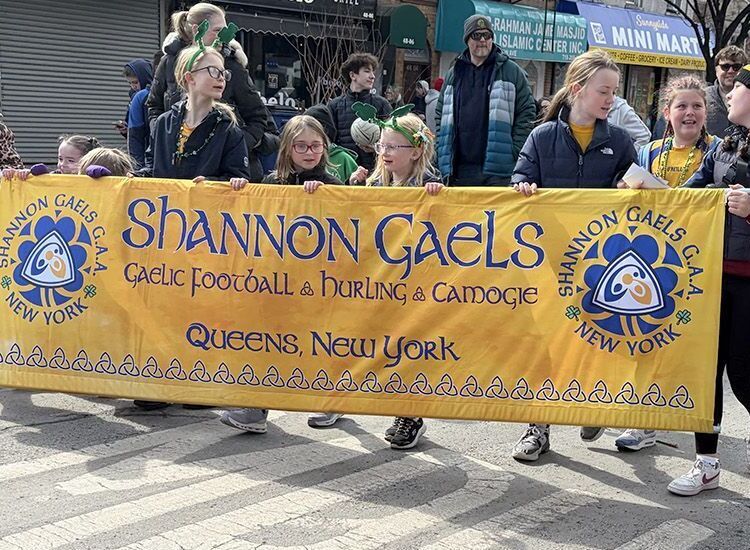[caption id="attachment_68755" align="alignright" width="600" caption="George Bailey (James Stewart), his wife Mary (Donna Reed) and their daughter Zuzu (Karolyn Grimes) in “It’s a Wonderful Life.”"]
Two Thousand and Eleven slouches towards history, laden with upheaval, angst, and apocalyptic weather, and there are at least 55,000 centenarians in the United States of America. In my heart, I am one of them.
In my heart, I am one of the citizens of our relatively young Republic who has achieved an age of 100 or better. In my heart, I am precisely - and one should always be precise when it comes to one's heart -- 104 years young.
In my heart, I was born in 1907. On the day I was born, The President of the United States was Theodore Roosevelt. He had been in the White House for six years at that point, but he was not yet 50.
In 1919, the year that Roosevelt died, I lost the hearing in my left ear when I pulled my little brother Harry from the freezing water beneath some thin ice.
I married the lovely Mary Hatch on Black Friday. We blew our honeymoon bankroll shoring up the savings and loan business my father had founded with his lovable but dim-witted brother, Billy.
On Christmas Eve, 1945, Uncle Billy almost destroyed our family business, and almost sent me to prison. He dropped all the money we had in the world into the lap of the devil incarnate. By so doing, he thrust me so far into the heart of darkness that only divine intervention, and a lifetime of good karma, could save me.
In my heart, I am George Bailey. If you are an American, and you have spent the first eleven years of the Third Millennium fighting the good fight, in your heart, you are probably George Bailey, too.
Hee Haw.
George Bailey, as if you didn't know, is the authentically noble, but utterly human protagonist of “It's a Wonderful Life”. Of all the motion pictures made by the estimable Frank Capra, “It's a Wonderful Life,” is probably the most Capraesque . The American Heritage Dictionary defines Capraesque as "evocative of the motion pictures of Frank Capra,” and as "often promoting positive social change through individual acts of courage."
Cynics tend to dismiss the world of the Capraesque as nostalgic schmaltz, but cynics are always too lazy to look beneath the surface. Bedford Falls should not be dismissed as one of a series of Pleasantvilles with which the American cinema has hypnotized and tantalized us. Bedford Falls is a construct of a singular time in American history. Bedford Falls comes from a time when Americans were already nostalgic for their agrarian roots, and apprehensive about the future of democratic principles. It was a place about which one could be sentimental, but it was also a place with its share of dark corners. All in all, It was not a bad place from which to be, and a highly appropriate place from which to proceed.
Of course, George Bailey did not get to proceed from Bedford Falls - he only got to save it.
Bedford Falls is George Bailey’s home, and his life's work. In Bedford Falls, George Bailey is surrounded by faithful, if needy friends, and stalked by one implacable foe: warped, frustrated old Henry F. Potter – a man whose very name is the specter of ignominious death.
In Bedford Falls, George Bailey fights the good fight.
The older I actually become -- the closer I get to 104 -- the better I understand what St. Paul is speaking about when he refers to fighting the good fight. St. Paul knew, and George Bailey and I know, that the good fight is actually two perennial struggles. Perhaps Frank Capra gave the world nothing more valuable than the witness of one man's good fight against two unappeasable realities. George Bailey, an American man who was born into the terrible beauty of the 20th century, contends with these two bogies for 130 indelible minutes:
1. The heartbreaking distance between what we hope for, and what actually occurs.
What is there to say about the poignant and ever-widening dichotomy between what we set out to do, and what comes to pass? When our earliest dreams are dashed, the extent of the tragedy depends not only on the beauty of those dreams, but on the form and scope of the things that actually come to pass. Clarence Oddbody, angel in training, shows George a Gomorrah called Pottersville, a lurid consequence of Bedford Falls without George. By doing so, he demonstrates how very much one life touches another, and what perdition may follow if just one of us is not in position when it is time to connect.
I am George Bailey because I know what it's like to wish that things had gone another way. I am maybe not so much George Bailey because I cannot say, as he surely can, that when I
deferred my dreams, it was for some exquisitely noble end - the life's work of a dead father; the college education of a younger brother; decent homes for the people who do all the working and
paying and living and dying in one’s little corner of the world.
Perhaps I am also George Bailey because, like him, I found much comfort and instruction as a result of all the detours I came to as I was on my way to somewhere else: including, but by no means limited to, the love of my life.
2. The unholy alliance between corruption and incompetence:
To me, the most harrowing scene in “It's a Wonderful Life” is when George berates Uncle Billy for losing the bank deposit. Here we see a good man at his worst. Tellingly, one might say that the more satisfying scenes are the ones in which George berates Old Man Potter. We should be satisfied by corruption's comeuppance, and we shouldn't have to look too far to understand why we feel diminished when incompetence is exposed - and subject to frustration's fury.
When George is confounded by his uncle's incompetence, it may put us in mind of Mr. Gower, young George's first boss, whose terrible error would have had far more horrific consequences had George not deflected it. ( We see this when Gower shows up in Pottersville as a pathetic drunk, and a whipping boy for Martini's previously amiable bartender Nick, who - presumably because of the absence of George’s good influence - turns out to be quite the creep.)
Uncle Billy, upon whose excruciating incompetence the story turns, is reduced to tears by his humiliation - but we know he has been duped and robbed by Potter. Mr. Gower is reduced to violence against one child by his grief over the loss of another: a child he lost to the Great War. The corruption of greed exploits the innumerable missteps of carelessness, just as the corruption of war provokes the obliviousness of despair. Villains lurk in all the shadowy corners of every Bedford Falls, but they are waiting to receive aid and comfort from the distracted and disorganized army of the incompetents.
I am George Bailey because corruption, that spawn of greed and arrogance, offends me to my core. I am maybe not so much George Bailey because no one's incompetence has caused me more grief than my own. In my loftier moments, I may see the wickedness in this world as an aberration against which I must be prepared to contend, but in my humbler moments, I understand that due diligence against my own carelessness is more than half the battle.
Maybe I am also George Bailey because on the evening I learn about forbearance and true gratitude, I may live to see that distracted and disorganized army coming through the door of my drafty old house, carrying a laundry basket filled with redemption.
I am George Bailey, the richest man in town, but every red cent of my indubitable wealth will vanish into thin air if ever I cease to fight the good fight.....
.....and dance by the light of the moon.
J.R. McCarthy is a schoolteacher and the author of a volume of poetry “Ambivalid or ‘Staggering Towards Virtue,’ And Back in the Holy Bronx.”









